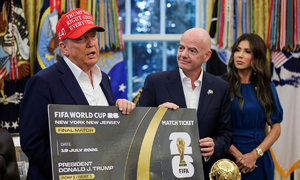최근 워싱턴 포스트에 실린 나와프 오바이드의 기고문은 매우 흥미로운 주장을 펴고 있다. 오바이드는 이 기고에서 미군이 이라크로부터 철수할 경우 사우디아라비아는 이란의 지원을 받는 이라크 내 시아파에 맞설 수 있도록 이라크의 수니파를 지원할 것이며 이란 경제를 압박하기 위해 석유시장을 교란할 것이라고 주장했다.
이처럼 무슬림들이 서로 싸우는 일이 일어난다면 근사할 것이라고 나는 생각한다. 많은 미국인들이 그러한 일이 일어날 것이라고 확신하지는 못하지만 솔직히 그럴 가능성에 대해서는 많은 말들을 주고받았을 것이다.
이 기고문이 게재된 후 사우디 정부는 이를 정면으로 부인했다. 그러나 오바이드가 주미 사우디 대사의 자문위원직에서 해임된 데 이어 대사인 투르키 알 파이잘 왕자도 대사직을 사임했다.
오바이드가 기고문에서 주장한 내용은 결국 사우디 정부의 견해를 반영한 것으로 볼 수밖에 없다. 적어도 뉴욕 타임스는 그렇게 추측했다.
또 AP통신에 따르면 이미 민간 부문을 통해 사우디의 자금이 이라크 내 수니파로 지원되고 있다. 뉴욕 타임스는 이러한 민간 부문의 지원이 곧 사우디의 공식 정책으로 바뀔 것이라고 보도하고 있다. 뉴욕 타임스는 사우디 정부가 아직까지는 알 카에다가 주도하는 이라크 내 수니파 지원을 보류하고 있다고 밝히고 있지만 이라크 상황이 악화하면 알 카에다든 아니든 상관없이 이라크 내 수니파 지원에 나설 수밖에 없을 것이라고 말한다. 게다가 이란은 이라크 내 시아파에 직접 지시를 내리는 데까지는 이르지 않았다 해도 시아파 지원은 이미 오래전부터 해오고 있다.
이런 상황에서 미국이 할 수 있는 것은 무엇인가. 헤즈볼라를 지원하고 홀로코스트(유대인 대학살) 자체를 부인하는 이란이나 시리아와의 평화 교섭을 주장하는 이라크스터디그룹(ISG)이나 미군 증파로 이라크에서 승리를 쟁취해야 한다고 주장하는 미 정부 내 강경파들이 받아들이기 어려울 것으로 보이는 방안 두 가지를 필자는 제안하고 싶다.
첫째는 군사적 방안이다. 그러나 어떤 저항세력이든 미군이 모두 무력화시킬 수 있다는 전제 아래 시행되는 이 같은 방안은 문화적 충돌을 되돌릴 수 없을 정도로 확산시킬 수 있다. 이는 또 불행하게도 미국이 충분한 주의만 기울인다면 불과 2주일이면 끝낼 수도 있는 이슬람과의 전쟁이 50년에서 100년 이상 계속될 수 있다는 것을 의미하는 것이기도 하다.
한편 서구 문명은 현대 전쟁에서 필수적으로 뒤따를 수밖에 없는 민간인의 희생에 대해 거의 강박관념이라고 할 수밖에 없을 정도의 거부감을 보이고 있다.
1943년 함부르크 대공습이나 일본에의 원폭투하가 2차 대전을 종식시키는 데 결정적인 기여를 했는지는 모르지만 오늘날에도 승리를 위해 그러한 민간인의 희생을 감수해야 할 필요가 있는지에 대해서는 의문을 갖지 않을 수 없다.
따라서 미국인들의 좌절감이 광적인 수준에 달하지 않는 한 이러한 군사적 방안을 채택할 가능성은 거의 없다고 할 수 있다. 테러와의 전쟁에서 가장 큰 문제는 우리가 적들로부터 우리의 민간인들을 보호하려고 노력할수록 미국의 민간인들을 살해하려는 적들의 의지와 노력 역시 더 커진다는 것이다.
이슬람 팽창주의자들을 막기 위한 또 다른 방법이 있다. 수니파와 시아파가 서로 싸우도록 내버려두는 것이 바로 그것이다. 양자의 분쟁은 미국이 부추긴 것이 아니고 미국이 종식시킬 힘도 이유도 없다. 수니파의 맹주인 사우디가 시아파의 맹주 이란의 목을 죈다면 이슬람교도의 테러로 고통을 겪는 서구로서는 좋은 일이 아닌가.
시아파와 수니파가 목숨을 걸고 싸운다면 서구로서는 앞날을 설계할 좀더 많은 여유를 가질 수 있을 것이다.
워싱턴 타임스
정리=유세진 객원편집위원
Let the Muslims fight it out
By Diana West
THE WASHINGTON TIMES
Published December 15, 2006
Funny thing about the recent op-ed by Nawaf Obaid in The Washington Post outlining likely Saudi actions if the United States withdraws from Iraq: namely, that Saudis would both support Sunnis in Iraq (versus Shi''ites supported by Iran) and manipulate the oil market to "strangle" the Iranian economy.
I think it sounds peachy, this let-them-devour-each-other strategy ? which I''m guessing many Americans mutter to one another in frankness, if not also in confidence.
After the column appeared, not only did the Saudi government disavow it, but Mr. Obaid was fired from his job advising the Saudi ambassador to the United States, Prince Turki al-Faisal. Hmmm, thought Saudi-ologists.
Before anyone could say, "shifting desert sands," Mr. Turki resigned his post in Washington, hightailing it back to the so-called kingdom for reasons unknown but possibly concerning machinations related to securing the post of foreign minister long held by Mr. Turki''s ailing brother, Prince Saud al-Faisal. The post is also coveted by former Saudi ambassador to the United States, Prince Bandar bin Sultan. Hmmm again.
But now it seems the Obaid column "reflected the view of the Saudi government," after all. At least, that''s the way the New York Times tells it. Meanwhile, the Associated Press is reporting that "private" Saudi money is already supporting Sunni forces in Iraq. According to the New York Times, this private funding could easily become official Saudi policy. While Saudi leaders say they have so far withheld support from al Qaeda-led Sunni groups in Iraq, the newspaper explains, "if Iraq''s sectarian violence worsened, the Saudis would line up with Sunni tribal leaders" ? al Qaeda or no al Qaeda. Meanwhile, we already know Iran is backing, if not guiding, Iraqi Shi''ites.
So what should we do?
I propose two options, neither of which has occurred to Iraq Study Groupies calling for peace parleys with Hezbollah boosters and Holocaust deniers, or to hawkish proponents of "winning" Iraq (or at least Baghdad) with more troops. But maybe that''s because neither group dares to reckon with the two greatest obstacles to our efforts in the region: namely, Islam (culturally unsuited to Westernity) and our own politically correct ROE, or rules of engagement (strategically unsuited to victory).
The first option is military, but it carries a seemingly insurmountable cultural override. The fact is, the United States has an arsenal that could obliterate any jihad threat in the region once and for all, whether that threat is bands of IED-exploding "insurgents" in Ramadi, the deadly so-called Mahdi Army in Sadr City, or genocidal maniacs in Tehran. In other words, it''s a disgrace for military brass to talk about the 21st-century struggle with Islam as necessarily being a 50- to 100-year war. Ridiculous. It could be over in two weeks if we cared enough to blast our way off the list of endangered civilizations.
As a culture, however, the West is paralyzed by the specter of civilian casualties, massive or not, that accompanies modern (not high-tech) warfare, and fights accordingly. It may well have been massive civilian casualties in Germany (40,000 dead in Hamburg after one cataclysmic night of "fire-bombing" in 1943, for example) and Japan that helped end World War II in an Allied victory. But this is a price I doubt any Western power would pay for victory today.
So, the military solution ? which isn''t the same as boosting ROE-cuffed troop levels in Baghdad ? is out, unless or until our desperation level rises to some unsupportably manic level. The great paradox of the "war on terror," of course, is that as our capacity and desire to protect civilians in warfare grows, our enemy''s capacity and desire to kill civilians as a means of warfare grows also. Our fathers saved us from having to say, "Sieg Heil," but what''s next ? "Allahu akbar"?
Not necessarily. There''s another Middle Eastern strategy to deter expansionist Islam: Get out of the way. Get out of the way of Sunnis and Shi''ites killing each other. As a sectarian conflict more than 1,000 years old, this is not only one fight we didn''t start, but it''s one we can''t end. And why should we? If Iran, the jihad-supporting leader of the Shi''ite world, is being "strangled" by Saudi Arabia, the jihad-supporting leader of the Sunni world, isn''t that good for the Sunni-and-Shiite-terrorized West?
With the two main sects of Islam preoccupied with an internecine battle of epic proportions, the non-Muslim world gets some breathing room. And we sure could use it ? to plan for the next round.
* peachy 복숭아 빛의, 멋진, 훌륭한
* devour 먹어치우다, 멸망시키다, 삼켜버리다
* mutter 중얼거리다, 속삭이다
* disavow 부인하다, 거부하다
* hightail 급히 도망하다, 남의 차 뒤에 바짝 붙어 운전하다
* covet 몹시 탐내다, 선망하다
* parley 회담, 교섭
* obliterate 말살하다
By Diana West
THE WASHINGTON TIMES
Published December 15, 2006
Funny thing about the recent op-ed by Nawaf Obaid in The Washington Post outlining likely Saudi actions if the United States withdraws from Iraq: namely, that Saudis would both support Sunnis in Iraq (versus Shi''ites supported by Iran) and manipulate the oil market to "strangle" the Iranian economy.
I think it sounds peachy, this let-them-devour-each-other strategy ? which I''m guessing many Americans mutter to one another in frankness, if not also in confidence.
After the column appeared, not only did the Saudi government disavow it, but Mr. Obaid was fired from his job advising the Saudi ambassador to the United States, Prince Turki al-Faisal. Hmmm, thought Saudi-ologists.
Before anyone could say, "shifting desert sands," Mr. Turki resigned his post in Washington, hightailing it back to the so-called kingdom for reasons unknown but possibly concerning machinations related to securing the post of foreign minister long held by Mr. Turki''s ailing brother, Prince Saud al-Faisal. The post is also coveted by former Saudi ambassador to the United States, Prince Bandar bin Sultan. Hmmm again.
But now it seems the Obaid column "reflected the view of the Saudi government," after all. At least, that''s the way the New York Times tells it. Meanwhile, the Associated Press is reporting that "private" Saudi money is already supporting Sunni forces in Iraq. According to the New York Times, this private funding could easily become official Saudi policy. While Saudi leaders say they have so far withheld support from al Qaeda-led Sunni groups in Iraq, the newspaper explains, "if Iraq''s sectarian violence worsened, the Saudis would line up with Sunni tribal leaders" ? al Qaeda or no al Qaeda. Meanwhile, we already know Iran is backing, if not guiding, Iraqi Shi''ites.
So what should we do?
I propose two options, neither of which has occurred to Iraq Study Groupies calling for peace parleys with Hezbollah boosters and Holocaust deniers, or to hawkish proponents of "winning" Iraq (or at least Baghdad) with more troops. But maybe that''s because neither group dares to reckon with the two greatest obstacles to our efforts in the region: namely, Islam (culturally unsuited to Westernity) and our own politically correct ROE, or rules of engagement (strategically unsuited to victory).
The first option is military, but it carries a seemingly insurmountable cultural override. The fact is, the United States has an arsenal that could obliterate any jihad threat in the region once and for all, whether that threat is bands of IED-exploding "insurgents" in Ramadi, the deadly so-called Mahdi Army in Sadr City, or genocidal maniacs in Tehran. In other words, it''s a disgrace for military brass to talk about the 21st-century struggle with Islam as necessarily being a 50- to 100-year war. Ridiculous. It could be over in two weeks if we cared enough to blast our way off the list of endangered civilizations.
As a culture, however, the West is paralyzed by the specter of civilian casualties, massive or not, that accompanies modern (not high-tech) warfare, and fights accordingly. It may well have been massive civilian casualties in Germany (40,000 dead in Hamburg after one cataclysmic night of "fire-bombing" in 1943, for example) and Japan that helped end World War II in an Allied victory. But this is a price I doubt any Western power would pay for victory today.
So, the military solution ? which isn''t the same as boosting ROE-cuffed troop levels in Baghdad ? is out, unless or until our desperation level rises to some unsupportably manic level. The great paradox of the "war on terror," of course, is that as our capacity and desire to protect civilians in warfare grows, our enemy''s capacity and desire to kill civilians as a means of warfare grows also. Our fathers saved us from having to say, "Sieg Heil," but what''s next ? "Allahu akbar"?
Not necessarily. There''s another Middle Eastern strategy to deter expansionist Islam: Get out of the way. Get out of the way of Sunnis and Shi''ites killing each other. As a sectarian conflict more than 1,000 years old, this is not only one fight we didn''t start, but it''s one we can''t end. And why should we? If Iran, the jihad-supporting leader of the Shi''ite world, is being "strangled" by Saudi Arabia, the jihad-supporting leader of the Sunni world, isn''t that good for the Sunni-and-Shiite-terrorized West?
With the two main sects of Islam preoccupied with an internecine battle of epic proportions, the non-Muslim world gets some breathing room. And we sure could use it ? to plan for the next round.
* peachy 복숭아 빛의, 멋진, 훌륭한
* devour 먹어치우다, 멸망시키다, 삼켜버리다
* mutter 중얼거리다, 속삭이다
* disavow 부인하다, 거부하다
* hightail 급히 도망하다, 남의 차 뒤에 바짝 붙어 운전하다
* covet 몹시 탐내다, 선망하다
* parley 회담, 교섭
* obliterate 말살하다
Copyright ⓒ 세계일보. 무단 전재 및 재배포 금지
![[설왕설래] 한·일 여권 없는 왕래](http://img.segye.com/content/image/2025/12/18/128/20251218518473.jpg
)
![[기자가만난세상] ‘강제 노역’ 서술 빠진 사도광산](http://img.segye.com/content/image/2025/12/18/128/20251218518441.jpg
)
![[세계와우리] 사라진 비핵화, 자강만이 살길이다](http://img.segye.com/content/image/2025/12/18/128/20251218518464.jpg
)
![[기후의 미래] 사라져야 새로워진다](http://img.segye.com/content/image/2025/12/18/128/20251218518446.jpg
)








